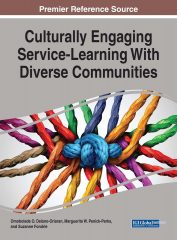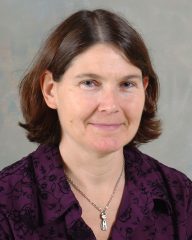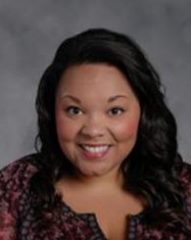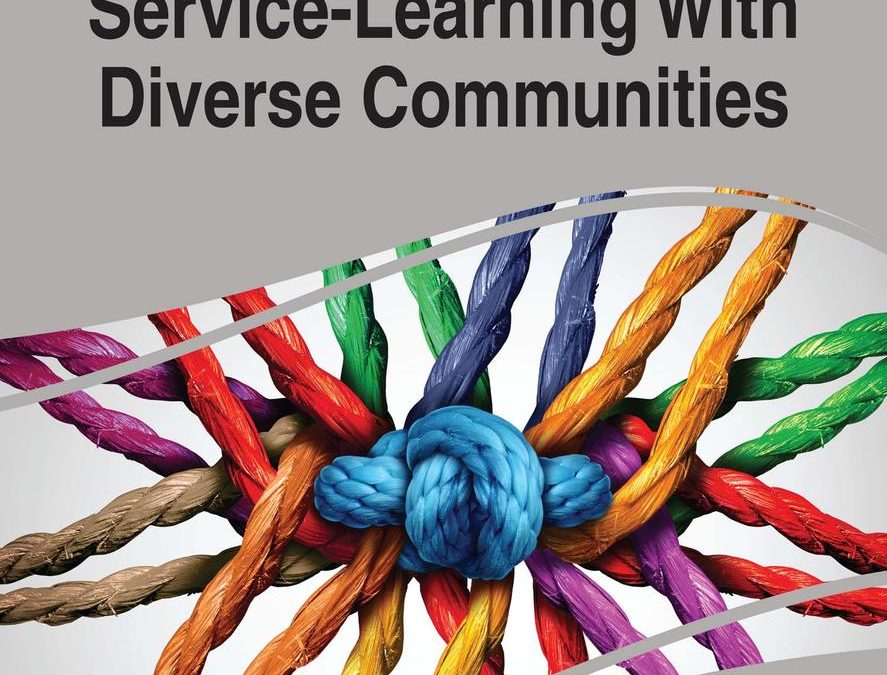
Two University of Wisconsin Oshkosh College of Education and Human Service professionals are celebrating the release of a social justice reference book they co-edited.
Marguerite Penick-Parks and Suzanne Fondrie of UW Oshkosh, along with Omobolade Delano-Oriaran of St. Norbert College, collaborated in the editing of Culturally Engaging Service-Learning With Diverse Communities.
The book is a reference source for the latest scholarly research on service-learning models that recognize how systemic social injustices continue to pervade society. Featuring extensive coverage on a broad range of topics and perspectives, such as cultural humility, oral histories and social ecology, the book is designed for scholars, practitioners and students interested in engaging in thoughtful and authentic partnerships with diverse groups.

Penick-Parks teaches graduate-level dialogues, young adult literature and children’s literature and serves as educational leadership and policy committee chair. Her work centers on issues of power, privilege and oppression in relationship to issues of curriculum with a special emphasis on the incorporation of quality literature in K-12 classrooms.
She appears in the movie, “Mirrors of Privilege: Making Whiteness Visible” by the World Trust Organization. Her most recent work includes a joint article on creating safe spaces for discussing white privilege with preservice teachers, and she is an editor of The Sage Sourcebook of Service-Learning and Civic Engagement; Everyday White People Confronting Racial and Social Injustice: 15 Stories, with Eddie Moore, Jr. and Ali Michael (Stylus, March 2015) and The Guide for White Women Who Teach Black Boys, with Eddie Moore, Jr. and Ali Michael (Corwin, October, 2017).
 UW Oshkosh graduate Angela Brown ’15, an elementary library media specialist for the Kaukauna Area School District, is a shining example of how young educators carry these lessons forward in their work. Brown has taken four undergraduate courses and two graduate courses with Penick-Parks.
UW Oshkosh graduate Angela Brown ’15, an elementary library media specialist for the Kaukauna Area School District, is a shining example of how young educators carry these lessons forward in their work. Brown has taken four undergraduate courses and two graduate courses with Penick-Parks.
“As an educator, it is crucial that I work diligently to promote social justice for generations to come,” Brown said. “The lessons that I learned in Dr. Penick-Parks’ courses have built the foundation of my understanding on the importance of social justice work and have provided me with ways in which to become an active participant in social justice.”
Each month, Brown takes one active step in social justice and then reflects on how this step impacted her own life and the community.
“I am responsible for purchasing texts for our school library and evaluating the current collection. After my social justice course, I began to evaluate our collection and noticed the limited number of multicultural texts,” she said. “I am thankful we were able to add a variety of texts to our collection and look forward to adding more.”
College of Education and Human Services Interim Dean Elizabeth Alterton is encouraged by how graduates are taking action to put social justice to work in their classrooms.
“Dr. Penick-Parks and Dr. Fondrie are both accomplished scholars who have built their careers grounded in advocacy and instructional practices rooted in foundational social justice issues that are essential for today’s educators,” Alderton said.
Learn more:
- UWO professor, social justice advocate serves as book editor
- UW Oshkosh College of Education and Human Services

